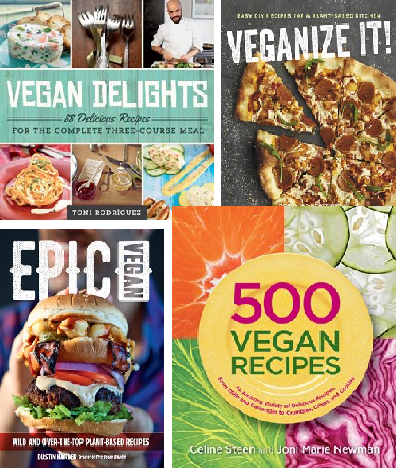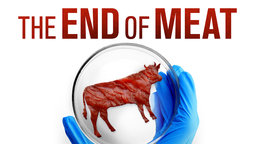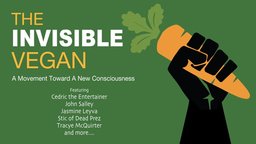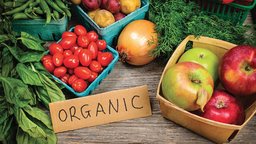Are you a devout bacon lover? A chicken wings connoisseur? A meat and potatoes kind of person? When you hear the word vegan, do you run for the hills?
For many, the word vegan is a dirty word – a radical lifestyle met with ridicule and skepticism. But I want to show you that going vegan doesn’t have to mean extraordinary sacrifice. Simply being more aware and mindful of how your decisions impact animals and the environment is a great first step toward embracing the vegan ethos.
You don’t have to jump straight into it. Take time exploring fresh fruits, veggies and vegan alternatives such as dairy-free milk and meatless burgers. Plant-based options are more prevalent than ever before. There’s no need to give up your favourites. I thought I would never again enjoy the taste of cheesecake, but I quickly found a delicious coconut-based alternative readily available at my local grocery store. Many of your favourite coffee joints like Starbucks and Second Cup offer tasty milk substitutes to satisfy your caffeine cravings. With summer around the corner, farmers’ markets are a great alternative to conventional supermarkets. You’ll be accessing more healthful foods while supporting the local economy.
But wait, how do you get your protein?! Protein deficiency is one of the biggest misconceptions about a vegan lifestyle. There are many highly nutritious plant-based sources of protein. Some of my personal favourites include lentils, chickpeas, green peas, quinoa, and tempeh. Even vegetables like spinach and broccoli are high in protein.
Worried about how to satisfy your cravings on a vegan diet? VPL has you covered with a wide assortment of vegan recipe books instantly available on Hoopla with your library card. 
Don’t forget that abstaining from meat is only half of the equation. Becoming vegan will also require a close look at the products you purchase, including clothing and toiletries. Check product labels and packaging for ‘certified vegan’ logos. Consider purchasing faux leather and opting for linen instead of wool.
Once you become more conscious of animal welfare issues, you’ll inevitably hit some grey areas, especially when it comes to excursions and entertainment.  Swimming with dolphins or riding elephants on vacation? – a no go. Going to Marineland? – out. How about visiting the zoo? You will have to decide what feels right for you. Do your research and don’t be afraid to ask questions.
Swimming with dolphins or riding elephants on vacation? – a no go. Going to Marineland? – out. How about visiting the zoo? You will have to decide what feels right for you. Do your research and don’t be afraid to ask questions.
Change is hard. There’s no doubt about it. I became a vegetarian at age 11 and it took me almost another 20 years to become vegan. As I became more and more vegucated, I realized that the dairy and egg industry is especially cruel – and don’t be fooled by labels like ‘free range’ or ‘organic.’
Start slow and remain positive. I’ve heard this phrase said often in regards to the zero-waste movement, but I feel it applies here as well: “We don’t need a handful of people doing zero waste perfectly. We need millions of people doing it imperfectly” (Credit:ZeroWasteChef). I urge you to try vegan in 2020, and don’t worry too much about making some mistakes along the way.
Intrigued but still unsure? Try out these top 5 helpful vegan e-resources:
- HappyCow: Download the app to instantly find vegan restaurants nearby
- Barnivore: For those who imbibe, download the app for your guide to vegan beer, wine, and liquor
- Is it Vegan?: Download the app and simply scan the UPC barcode on the package of any food or beverage to find out whether a product is vegan
- LIVEKINDLY: Keep up to speed on vegan trends and news focused on sustainable and compassionate living
- Plantbasednews: Subscribe for up-to-the-minute plant-based & vegan news, blogs, reviews, and much more


Farmer’s markets are magical! I love going through them – not sure if we’ll be able to get those this year, but I did look around a bit at nearby farms and CSA subscriptions are still an option to get fresh fruits & veggies delivered to your door or reserved for pickup. (Which might also help for those of us not quite ready to give up meat just yet, as dealing directly with the farms and choosing which farm specifically you support means you get to do more research and dig into how they treat their animals.)
As for wool, for sure there is an issue with animal abuse in the wool industry, speaking very generally and painting in broad strokes – as with any industry that deals with animals, including but not limited to the pet industry – from mulesing to incidents of violence during the shearing process (and if we’re talking about the environment let’s also briefly consider the dyeing process (for which natural dyes are not necessarily a better alternative as far as the environment goes, mind)), but as you mentioned, we can take the time to learn about the companies we are supporting in this regard: there are a number of yarn companies that I know take the time to work with specific herds, working with the shepherds/farmers so that the customer knows where their wool came from. That being said, of course this depends on the reason you’re avoiding wool (e.g. perhaps because you might believe it’s inherently wrong to take from an animal that doesn’t know any better/can’t choose; because of incidents of animal abuse present in the wool industry; maybe you just don’t like sheep and can’t stand the thought of touching wool).
And the same goes for what fruits & veggies you decide to opt for: it might be worth a look into where you’re getting them from in order to figure out the environmental impact of the farmers’ practices. Even just figuring out what the rules and regulations are for specific labels, like “organic” or “free-range”, as you mentioned, can be eye-opening and really interesting to learn about! Not to mention how the chickens that we eat now have been bred to become what they are (edging out other species of chicken available for gustatory variety as one of the many unfortunate byproducts of their development), which is a fascinating history. Then apart from the fruits, veggies, and meat you’re consuming and the practices you support, there’s also the issue of spices and where they come from, and whether your choices in spices are perpetuating a system borne of colonial oppression. Fascinating topic!
And while we’re on the topic of abuse in industries, let’s not forget about taking the time to do some research and supporting the companies that give their workers safe working conditions and compensate them fairly for their work. (Who Made My Clothes? movement is a good place to start.)
I guess all this to say, this is a great time to be a vegetarian or vegan, considering the wealth of information out there (though obviously doing careful research becomes all the more important with this overwhelming amount of information) as well as the options available for people at every stage of the journey, whether it’s just making more conscious decisions as to where your meat comes from and learning about the meat industry, or making the full transition.
Those are some excellent points! There are so many layers to explore and research when you set out to live a more ethical lifestyle. Not only is there avoiding animal consumption to consider, but as you mentioned we are also dealing with human welfare issues and environmental sustainability. I recently watched Invisible Hands and was shocked to find out how prevalent child labour continues to be across the world, from tobacco farms in the U.S. to cocoa plantations in Ghana. Then I recently watched Super Size Me 2, and was reminded how cruel and deceptive the fast-food industry can be. Spices are a topic I know very little about. I will have to look into that next! Do you have any reading/viewing recommendations? With all the information and resources available these days, I hope we will all take the time to make more meaningful choices in our everyday lives.
Do we have Invisible Hands in our collection? I’d love to watch that one! I haven’t started looking at the fast-food industry, but I’ve seen a number of titles just browsing through our shelves that speak on how fake this food is (I mean, not that this should be any news – though to be fair, my favourite comfort pad thai is from a fast-food chain, is absolutely devoid of nutrients, and I still love it and continue to order it (in moderation)), and would love to learn more about that. Any titles to recommend? Thinking about watching someone eat only fast-food and suffer its consequences, even as a social experiment, makes me uncomfortable…
As an aside: have you read Tomatoland? Highly recommend it (though I think there’s a newer edition so I’d suggest reading the latest one for any updates that might’ve happened between first and last publication).
For spices, I was only recently introduced to the issue through a spice company called Diaspora co., whose owner was one of the guest speakers for the Culturally Ours podcast (https://www.culturallyours.com/podcast/sana-javeri-kadri/) – Diaspora has a journal entry on this subject as well if you prefer reading about it (https://www.diasporaco.com/blogs/journal/the-big-story). I’m having a hard time finding more written on the topic in a preliminary search, though it might be in part because this topic hasn’t picked up as much yet or might be in scholarly resources rather than written for the general public. I guess a good place to start would be the history of colonization in India, but I’m hoping someone writes a comprehensive history on the impact of colonization in India specifically on the spice trade, covering both the history & how that has led to the structures currently in place so I don’t have to do the digging myself! The only title I found on the spice trade in our catalogue seems to be Nathaniel’s Nutmeg (https://vaughanpl.bibliocommons.com/item/show/247269130), which sounds like an absolute riot of a read. This other one, The Book of Spice (https://vaughanpl.bibliocommons.com/item/show/307816130) claims to include history of the spices, but judging by the call number I’m going to say it’s more about how to use these spices in cooking rather than how they fit into history.
Invisible Hands is available on Kanopy: https://vaughan.kanopy.com/video/invisible-hands. I feel like Fast Food Nation (https://www.hoopladigital.com/title/12325340) was one of the first books I read that really opened my eyes to this issue. It was written almost 20 years ago, but I still think it stands up today. Fun side fact, they even turned it into a comedy-drama film with Avril Lavigne back in 2006! I would not recommend it though haha! The Omnivore’s Dilemma (https://vaughanpl.overdrive.com/media/663107) is another fascinating one. You should totally still continue to enjoy your pad thai! It sounds delicious. What is the name of the restaurant?
I will definitely be checking out Tomatoland! Thank you for those spice recommendations as well. I’m excited to explore and learn more about that topic. Nathaniel’s Nutmeg does look intriguing – love a good adventure story! 🙂